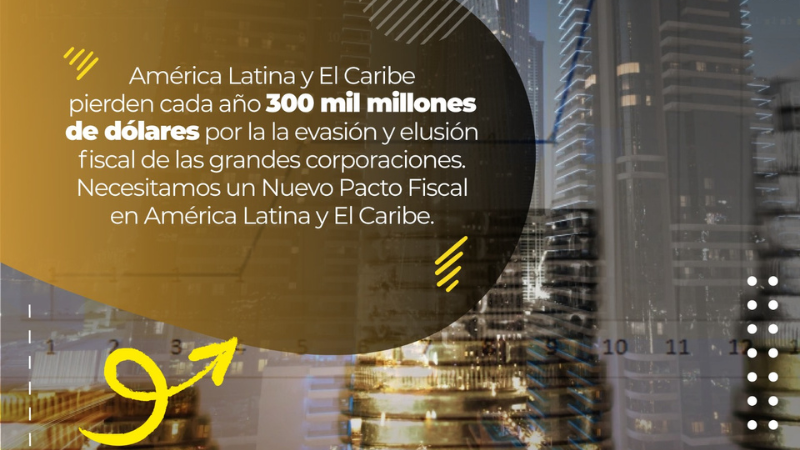Article originally published in Spanish by Latindadd
Latin America and the Caribbean are in a dire situation. The region is being affected by multiple crises: economic, health, social, climate crises and many others, which keep it in “survival” mode and hinder its development, while at the same time aggravating its structural problems: inequalities, exclusion, poverty and hunger.
There is no more room to implement adjustment and austerity policies without this meaning that more people will live in poverty and food insecurity situations, without access to public services, among other deprivations that these measures carry with them.
With this backdrop, the “Latin American and Caribbean Summit for an inclusive, sustainable and equitable global taxation” will be held on 27 and 28 July, in Cartagena, Colombia. The Ministers of Finance and Economy of the countries that compose the region have been summoned to this event to seek joint positions on what is required for a tax system that meets these demands.
Red Latinoamericana por Justicia Económica y Social (Latindadd) welcomes the initiative of the Government of Colombia, led by Gustavo Petro, who convened this first summit. This space materialises the mobilisations that civil society organisations working on tax justice have been promoting for more than a decade. The current system allows the implementation of a series of mechanisms that plunder the public funds and require actions to combat tax evasion and avoidance by large corporations and companies, and the elimination of tax privileges that aggravate inequality in our countries.
It is urgent to establish progressive tax systems, where the great fiscal pressure does not fall on the citizen, through consumer taxes, but where progressive scales are established in coherence with the objectives of reducing inequalities. This also requires taxation of large fortunes and wealth and the search for tools that allow tax systems to respond to contemporary means of production, consumption and trade. Finally, in this context, there is an imminent need to eliminate tax havens, channels used by large corporations and millionaires to hide their wealth and evade taxes.
